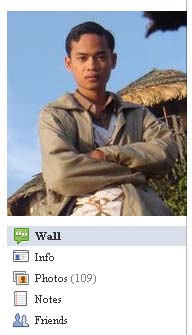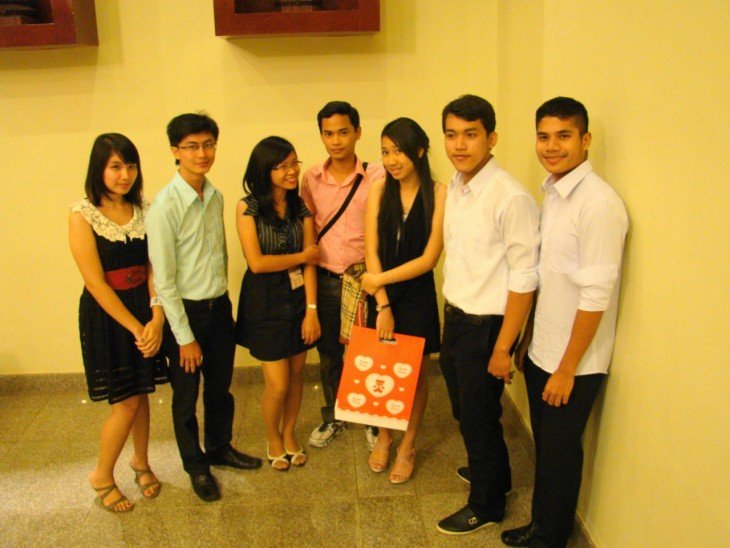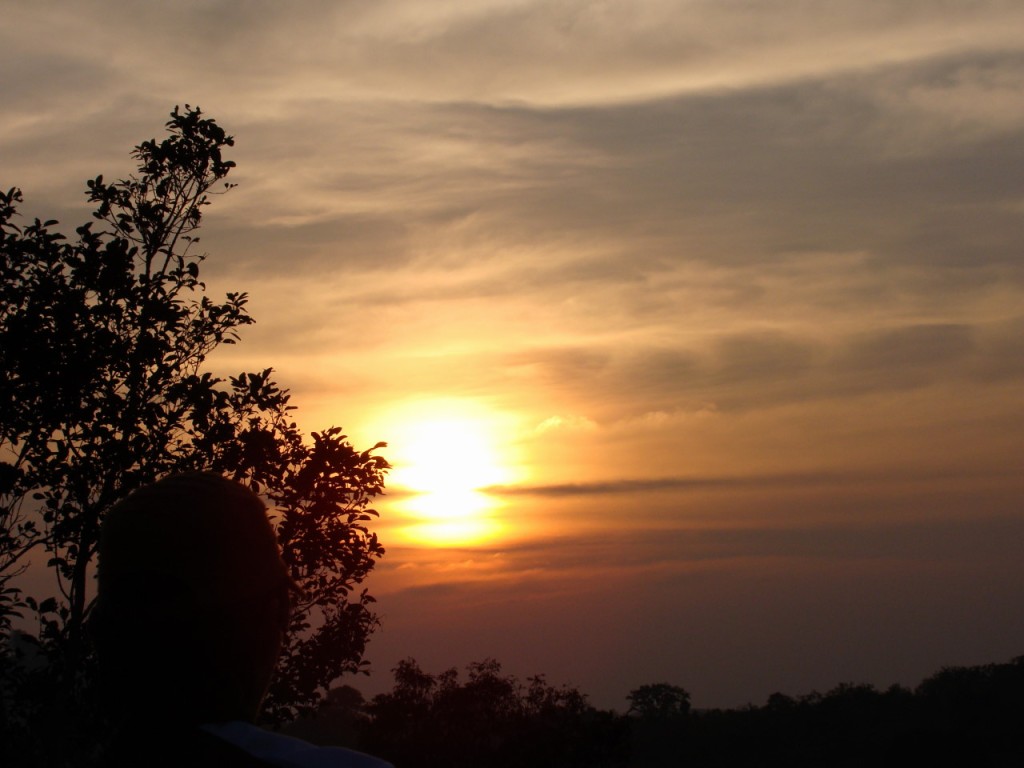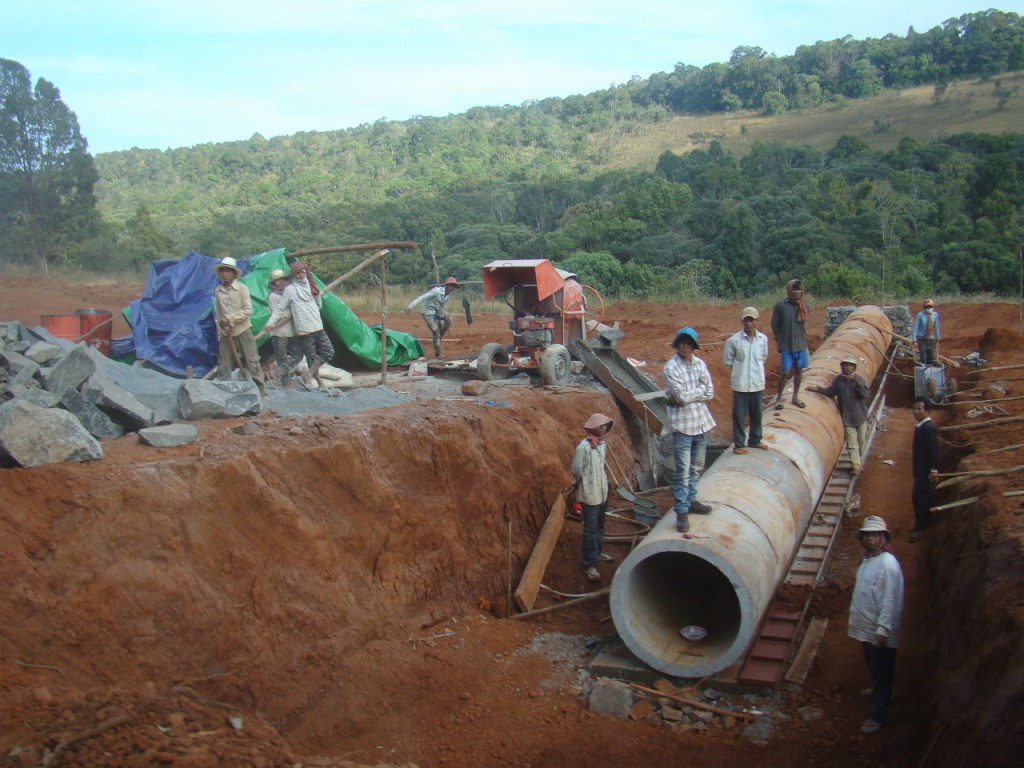Dara Saoyuth steps away from his own Facebook page long enough to talk to anyone in the country who would know about what consequences Cambodian stand to face if they are overly critical online.

My Facebook profile
It went public in 2006, and since then Facebook has become the world’s largest social networking site with more than 500 million active users worldwide. Facebook has increasingly become integrated into Cambodian internet users’ daily experience as more than half of the users surveyed used Facebook at least once a day and another one-third used several times a week, according to an online survey of 468 Cambodian Facebook users published by the Department of Media and Communication.
There are 255,660 total Facebook users in Cambodia now as reported by socialbakers.com, one of the biggest Facebook statistics portals in the world. Users know that Facebook is an effective tool for networking, communicating or advertising, while tending to ignore or simply not knowing about some important aspects that might lead to legal action, especially involving privacy.
For example, Cambodia is no different from the outside world, where a person can be accused of defamation and face legal action if they post something on asocial networking site that is considered a public place. However, no such case has happened in Cambodia, so far.
“So far, there is no point mentioned in Cambodian laws related to Facebook privacy,” said Sok Samoeun, an executive director at Cambodian Defenders Project, who suggested the possibility that a page might not be a private place anymore if everyone can see its contents or that page has hundreds of friends or members.
Pen Samitthy, the president of the Club of Cambodian Journalists and editor-in-chief of the Rasmey Kampuchea newspaper, said that social networking sites are very good because they create a new form of broadcasting news that he called citizen journalism.
“Now everyone can work like a journalist because they can provide information whenever there is computer and internet connection,” said Pen Samitthy, who acknowledged that there were some negative points with this kind of citizen journalism. He said people who use social networking sites as a tool to disseminate information normally don’t have a professional background, so they cannot balance a story and they just write what they see and put what they think with doing proper research.
Posting, commenting and uploading photos or videos are normally what people do on these sites, to share their experiences and emotions towards daily life. Facebook also allows users to create groups, invite other people to join and make discussions on their topic of interest.
Among the numerous groups created by Cambodians, Khmer Motherland (Meatophum Khmer) is supported by its 1,350 members and Khmer People Network (Bondanh Polrot Khmer) is supported by its 294 members. These are two groups that get updated very often. Most of the topics being discussed by these groups is related to politics and social issues.
A 24-year-old university student who asked to be callled by his nickname of Roumket Roumsomrech Roumtver is a member of the two Facebook groups. He said that normally someone puts up a posting and that leads to a discussion which sometimes turns into an argument.
“Since members try to reflect their personal views, especially on politics and the fact that not all of them have the same tendency, some of them have attacked each other in the form of comments back and forth instead of trying to understand one another,” said Roumket Roumsomrech Roumtver, who explained that by not using his real name on Facebook he felt more confident commenting on politics.
Pen Samitty said it will not cause any problems if a person creates a group to discuss things with a few of his or her friends, but it might lead to problems when putting in links for everyone to see. He added that although there is no law on internet use yet, it may violate another law like defamation if someone went too far.
Facebook is an international website that attracts all nationalities, but AngkorOne.com is the international website that attracts Cambodians living all over the world. To help its members get around any legal problems, AngkorOne.com, a Khmer social networking site with nearly 14,000 members, have created some policies for posting things.
Steven Path, the founder and chief executive officer of AngkorOne.com, said he has staff and members to review all the content to make sure that members are respectful to one another and not get involved in political discussions. “When it comes to political attacks, we see on other websites that they attack very violently and we don’t want this to appear on AngkorOne.com,” he said.
“It’s not about quantity, it’s about quality. We are not concerned about having thousands of posts every day, but we do get about 300 to 400 posts per day that are quality ones.”
By: Dara Saoyuth
This article was publish on LIFT, Issue 66 published on April 13, 2011



